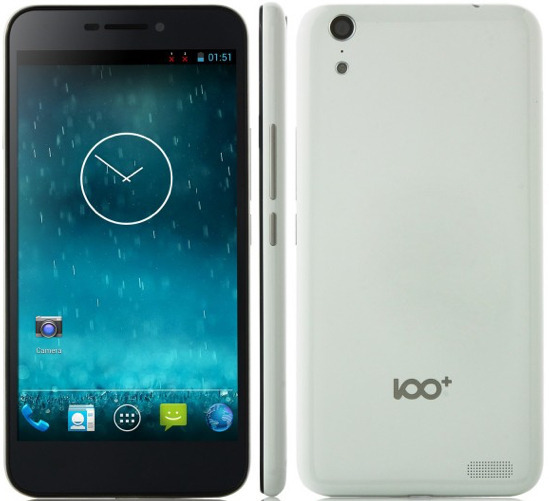Apple on Wednesday appeared in Chinese court to defend its iPhone 6 from patent infringement charges leveled by now insolvent tech firm Shenzhen Baili, arguing that the Beijing Intellectual Property Office defied legal convention in its decision to ban sales of the device.
Presenting Apple's case in front of the Beijing Intellectual Property Court, attorney Yang Pu said the ruling to ban iPhone 6 and iPhone 6 Plus sales due to design similarities with Baili's 100C smartphone was unfounded and unreasonable, reports China Daily.
Apple argues the iPhone 6 series design includes 13 technical differences as compared to patent filings protecting Baili's 100C smartphone.
"Average consumers can distinguish them easily," Yang said. She pointed specifically to the symmetrical curvature of iPhone's chassis, "which is completely different from the Chinese product."
Baili filed its patent lawsuit against Apple in December 2014 at a time when the company was flush with funding from big investors like Chinese tech giant Baidu. When the Beijing regulatory body finally reached a decision in favor of Baili this past June, consequently granting a sales injunction against iPhone 6, the little known firm and its parent Digione were insolvent.
Attorneys for Digione said the Baili subsidiary, while depleted, was "still operational in its necessary functions." With no financial activity to speak of, and a parent company who moved away from the smartphone market, Baili is for all intents and purposes a non-practicing entity.
In true patent troll form, Digione has suggested a potential expansion of its patent case to include Apple's more recent iPhone 6s designs.
Interestingly, the 100C design patent dates back to March 2014, around the same time leaked images and renders of what would become iPhone 6 began to circulate on the web. It has been speculated that Baili simply aped the leaked material in a bid to get a product out ahead of the Cupertino tech giant's usual fall refresh cycle. The company vehemently denies those rumors.
The Beijing Intellectual Property Court did not furnish a verdict following Wednesday's nearly eight-hour trial. As such, Apple's iPhone 6 and 6 Plus remain on store shelves pending the trial's outcome.
Despite Apple's consumer success in China, the country's arcane IP laws have at times proven difficult to navigate. In 2012, for example, the iPhone maker paid out $60 million to settle an iPad trademark dispute with embattled local monitor maker Proview. More recently, Apple lost exclusive rights to the iPhone moniker as it applies to smartphone accessories.
 Mikey Campbell
Mikey Campbell







-m.jpg)






 Christine McKee
Christine McKee
 Malcolm Owen
Malcolm Owen
 Marko Zivkovic
Marko Zivkovic

 Andrew Orr
Andrew Orr
 Andrew O'Hara
Andrew O'Hara
 William Gallagher
William Gallagher




-m.jpg)


17 Comments
This decision will say more about the geopolitical climate than the specifics of this bogus patent infringement suit.
China has a chance to stand up for Apple against this pretender. Apple and the State Dept. ar e certainly watching this case with great interest!
Do the right thing Peoples Republic of China.
good luck.
The Chinese government is the ultimate arbiter of this infringement case, the specifics of a case, many times have no bearing in a Chinese court.
China seriously wants to get off to a good start with the incoming Administration. A Chinese good faith effort in that vein, would be a fair and fact based trail of Apple and/or the intellectual property thiefs being thrown out of court without delay.
These things happen. Serious times are ahead, for China, their relationship with Apple and America as a whole.
They are sober strategists. As I said, this decision, when it is made will be an open view into their world view as relates to the USA.
Apple should pull its weight around more and use it against the authoritarian, cheating and corrupt commies over there in China. Their leaders are without a doubt very small men.
Does Apple not contribute to massive amounts of jobs over there?
iPhone 6 sales ban by China?
The world's #1 copyright infringers have the nerve to ban anything by Apple?
I've said it before, but Apple should have some back up plans, just in case. It would be foolish not to. You know what I'm saying? :#